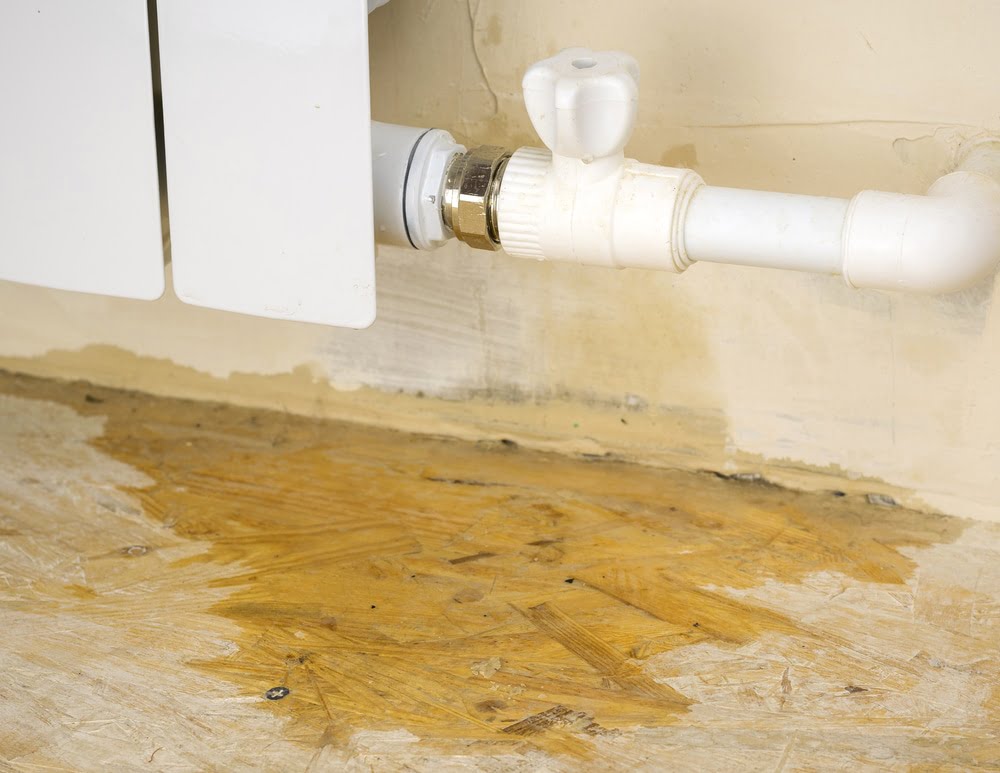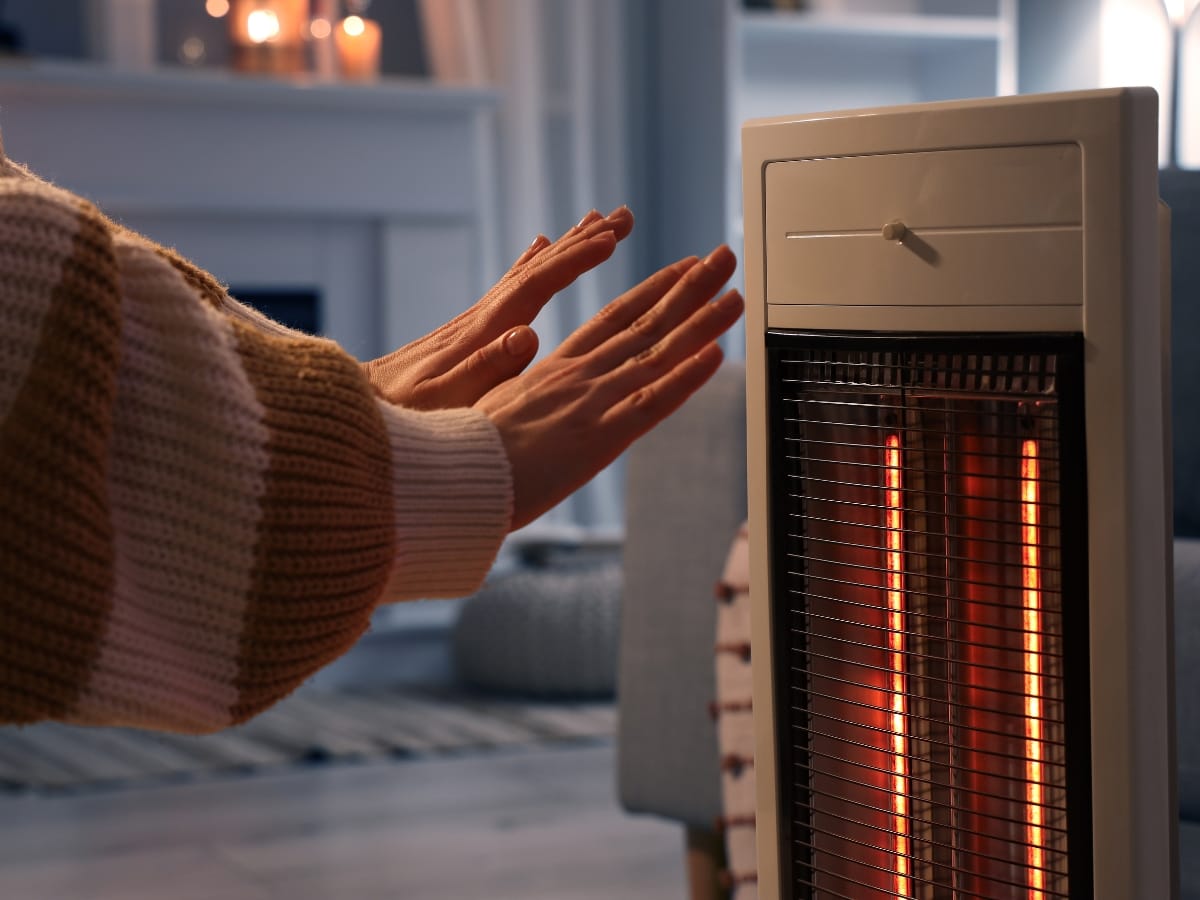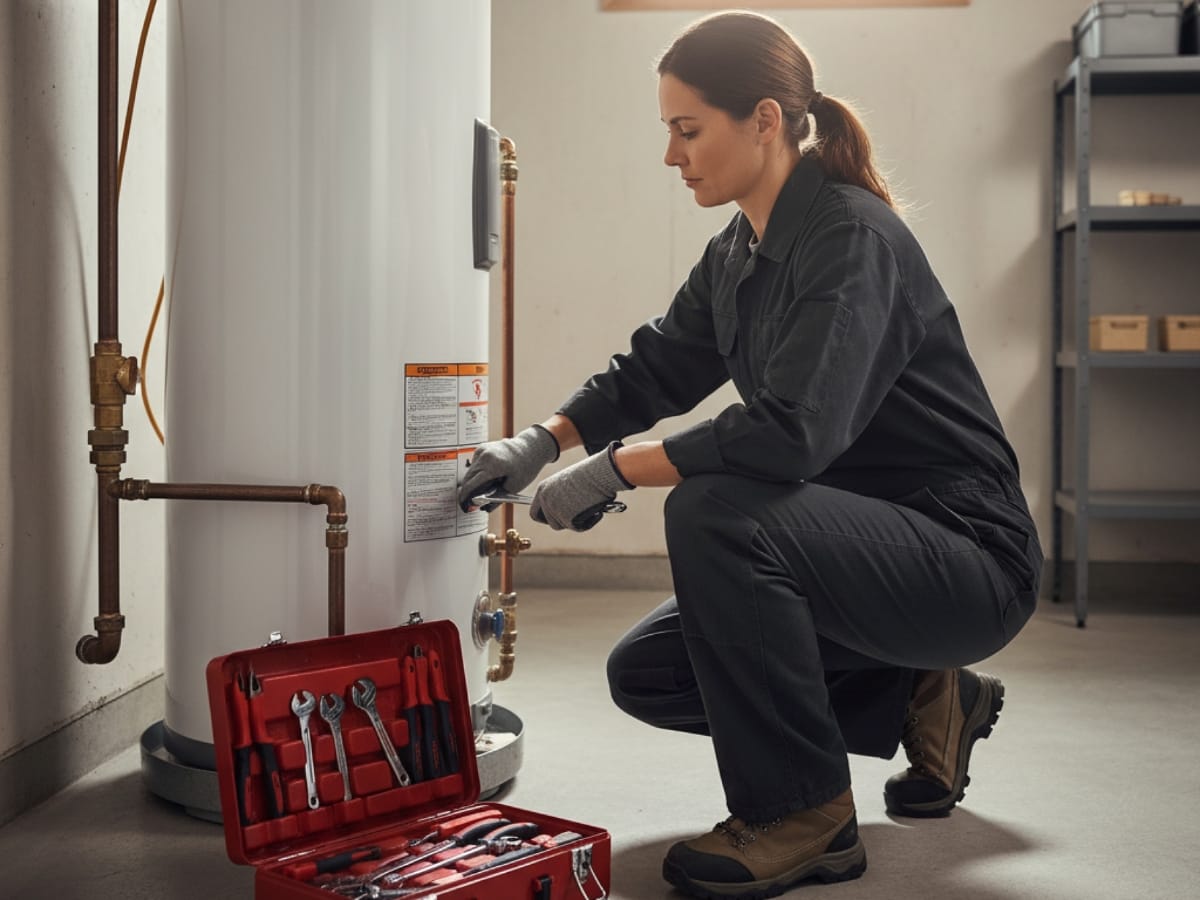Why is My Heat Pump Leaking & How Do I Fix It?
A working heat pump is essential during the winter and summertime. By effectively transferring heat in and out of the home, a refrigerant can help keep temperature moderate. If there is a leak coming from the heat pump, this can cause water damage and mold in the home.
What Exactly Is Refrigerant?
Refrigerant is a chemical compound that refers to the refrigeration cycle. It helps the heat from one set of heat pump coils move to another. When this heat exchange occurs, the pump can both:
-effectively cool the house during the summer by absorbing heat from the indoors
And
-effectively heat the house during the winter by releasing heat from the pump’s coils
Refrigerant is a key part of the heating process. If a leak develops, this can be due to a loose connection somewhere in the pump, corrosion, or additional damage. Once there is a leak, ice can develop over the heating coils causing the pump to malfunction.
How Do You Know If You Have A Heat Pump Leaking?
The easiest way to tell if you have a heat pump leaking is by the indoor temperature. If it’s increasingly difficult to warm a house during the winter or cool a house during the summer, this may be an indication that the heat pump is leaking. During this time, you may find yourself constantly turning up the heat or leaving it running throughout the day and night.
Increasing electric bills are another frequent sign of leakage. Since the heating pump is taking more energy to heat or cool a house, bills can start to rise. Depending on the specific situation, some electric bills can rise all at once while others may gradually increase over time.
If the heating pump is leaking, ice will begin to form around the heating coils. The evaporator coil cannot absorb as much heat without refrigerant and moisture can cause it to freeze. If ice is accumulating on the heat pump, calling a trained technician is recommended. A refrigerant leak will need to be sealed properly.
Why Is My Refrigerant Leaking?
There are a variety of causes to a refrigerant leak, but only two main components are likely.
-the interior air handler
-the exterior condenser
1.) The interior air handler is the indoor section of a heat pump system. They work similarly to furnaces because of the way they circulate air. Air handlers are reliant on a heat pump to work.
2.) An exterior condenser is the outdoor part of a heat pump. This is responsible for releasing or collecting heat. The compressor is one of the main functioning parts of a heat pump since it compresses the refrigerant. A technician can look at the condensate pump among other parts to diagnose the problem.
Both of these components can build up condensation that may, over time, build up and leak. If there is a leak inside the home, a condensate drain line may be to blame. Because of clogging, this drain can overflow. Outside leaks are frequently caused by ice on the cooling coils.
What Happens If I Don’t Fix The Leak?
A refrigerant leak is not directly dangerous, but its impact could be. Without the right amount of refrigerant, heating a home can be extremely costly. Depending on where you live, this could potentially be a dangerous situation. If indoor temperatures are unpredictable or lower than they should be, cold weather can cause health problems.
Letting a heat pump leak is often a drain on finances. One of the most common complaints about a leaky pump is the impact it has on electric bills. A heating pump can still work if it is leaking refrigerant, but the heat will have to be cranked up much higher to get the same effect. A higher thermostat in combination with prolonged use throughout the day and night can cause a dramatic rise in cost.
Refrigerant leaks are also harmful to the environment if they are not taken care of. The chemical compound found in refrigerants often negatively affects air quality. If this is inhaled, the respiratory system may be impacted. Over time, this can lead to headaches, skin irritation, and coughing.
How To Fix A Heating Pump
Heating pump leaks are fairly common. Hiring a professional to fix a refrigerant leak is advised because there can be electrical issues.
A proper diagnosis of why the leak has occurred is crucial. If you think you understand what causes a heat pump leaking, but aren’t sure, the problem could get worse. When working with the chemical components in a refrigerant, safety matters. Accidentally inhaling freon can cause nausea and skin irritation as well as confusion.
If you notice ice buildup on the outside part of the heating pump, a trained technician can fix the leak. Depending on the circumstance, this does not usually take a long period of time.
How To Prevent Heat Pump Leaks
One of the best ways to avoid paying a high utility bill is to prevent possible leaks from occurring.
Enclosing the heat pump unit can prevent the pump from possible outside damage. A fence is often recommended to keep animals away from the unit. If pets or wild animals urinate near the pump, this can disintegrate the coils.
A unit with aluminum coils instead of copper can also minimize the likelihood of leaks. Aluminum can withstand the type of corrosion caused by formaldehyde. If a heating pump has corrosion, this can cause holes.
Conclusion
A regular heat pump inspection should be done approximately once a year depending on the pump. Maintenance can include inspecting the condensate pump, filters and ducts, flushing the drain line, and measuring refrigerant. A trained technician understands not only the solutions to these problems but what causes them and how they can best serve the individual. Maintenance is often a necessary step in preventing refrigeration leaks. While this type of service may be an annual occurrence, it will ultimately save you from having to replace the pump before it’s time. Although leaks are not always dangerous, they can cause serious financial damage. If you have a leak, give CoolPro Heating and Cooling a call.







